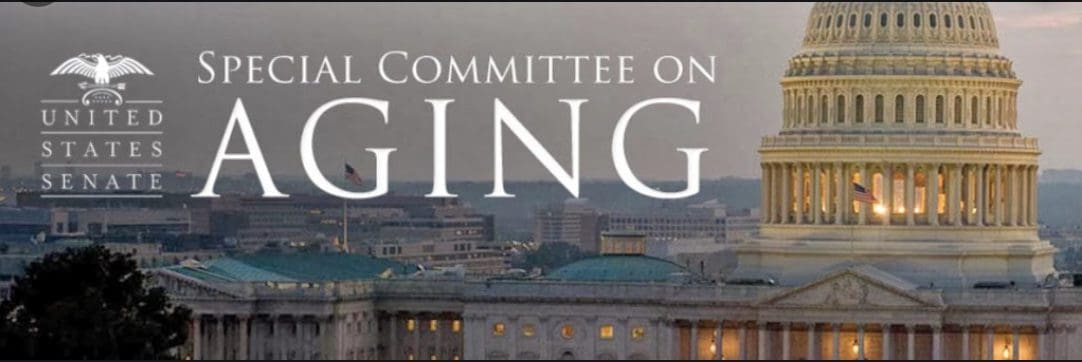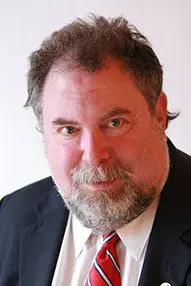Search Posts
Recent Posts
- Out and About in RI: Former Pawtucket Mayor Henry Kinch Tribute in Photos June 24, 2025
- Rhode Island Weather Forecast for January 24, 2025 – Jack Donnelly June 24, 2025
- ART! Mark Freedman, first featured artist of Summer Art Shows at Charlestown Gallery June 24, 2025
- The Bellevue Hotel: Procaccianti Co. New Luxury Boutique Hotel Set for Newport’s Iconic Bellevue Ave June 24, 2025
- Mike Stenhouse, CEO of RI Center for Freedom & Prosperity, named into College Baseball Hall of Fame June 24, 2025
Categories
Subscribe!
Thanks for subscribing! Please check your email for further instructions.

Senate Aging Committee Tackles COVID-19’s Devastating Impact on Seniors
By Herb Weiss, contributing writer, aging
According to an analysis conducted for the Foundation for Research on Equal Opportunity, as of May 22, in the 39 states that currently report such figures, 43 percent of all coronavirus (COVID-19) deaths have taken place in nursing homes and assisted living facilities.
Since March, the COVID-19 cases in Rhode Island’s nursing homes has exploded with in end in sight. It has been reported that 75 percent of all related COVID-19 deaths are in Rhode Island Nursing Homes.
The Rhode Island Department of Health (RIDOH) has moved to put the breaks on the spread in nursing homes has designated Oak Hill Center in Pawtucket and Oakland Grove Health Care Center in Woonsocket to be a COVID-19 Specialty Nursing Home. These facilities will only accept new patients who are known or suspected of being COVID-19 positive or who have COVID-19 symptoms.
RIDOH has offered to test every nursing home resident and worker, committing to re-test all employees every seven to 10 days. The Rhode Island National Guard has been detailed to assist with infection control at the facilities and a new state program gives pay raises to low-income workers in nursing homes and supplies personal protective equipment in facilities.
Recently, the Rhode Island House Republican Caucus has called for members of the House Committee on Oversight to meet to address the increasing COVID-19 death rate in the state’s nursing and assisted living facilities.
In the midst of the skyrocketing COVID-19 in nursing and assisted living facilities across the nation, Congress is moving to address this issue. With bipartisan bickering on Capitol Hill as to what should be included in the fifth coronavirus (COVID-19) stimulus package, the Senate Aging Committee holds Congress’s first hearing in Senate Russell Office Building 301 on the disproportionate toll the COVID pandemic is having on the nation’s seniors, particularly those who reside in nursing homes.
Adults ages 65 years and older represent two out of every five hospitalizations and eight out of every 10 deaths from the virus. The 1.5 million nursing home residents and seniors residing in group care settings (including assisted living facilities) are especially at risk. Nationwide, residents and workers in nursing homes and other long-term care settings represent more than one-third of all COVID-19 deaths. According to reports, to date more than 34,000 nursing home residents have died from COVID-19.
COVID-19’s Deadly Toll on Seniors
The Senate hearing, “Caring for Seniors Amid the COVID-19 Crisis,” held on Thursday, March 21, 2020, explored what can be done to better protect this vulnerable population. Over two hours, Senators heard testimony from a panel of experts who are supporting older adults in hospitals, nursing homes, home health settings, and the community. (Due to the limited access to the Capitol Complex, the public is only able to view the morning hearing live on the committee’s website at https://www.aging.senate.gov/hearings/caring-for-seniors-amid-the-covid-19-crisis.
“COVID-19 has brought tremendous hardship and tragedy, placing a heavy burden on the frontline workers, straining our healthcare and distribution systems, and imposing a deadly toll on our seniors in particular,” said Senator Susan Collins (R-Maine), who chairs the Senate Aging Committee. “Those in nursing homes and congregate care centers are especially at risk. Nationwide, nursing home residents represent one-third of all coronavirus deaths. In Maine, the toll on nursing home residents is even higher,” adds Collins.
“Our nation is facing the greatest public health crisis it has seen in a century. This terrible virus is causing death and destruction at lightning speed, especially among older Americans who are most vulnerable for complications from COVID-19,” added Ranking Member Bob Casey (D-Pennsylvania). “We have added unprecedented amounts of funding to purchase personal protective equipment, testing and ensure seniors in the community have access to home and community-based services that keep them out of congregate settings, but this is not nearly enough. We cannot stop working we cannot stop legislating, we cannot stop appropriating dollars to help our seniors,” says Casey.
“This unprecedented time calls for equally unprecedented action. The Administration has to do more and Congress has to do more to help our seniors and their families at every turn,” said Casey. During the hearing, the Senator highlighted his bill (S.3768), the Nursing Home COVID-19 Protection and Prevention Act, introduced with Senator Sheldon Whitehouse (D-Rhode Island, which would help mitigate the pandemic’s disproportionate impact on nursing homes by helping states purchase personal protective equipment (PPE) and testing and fund premium pay, overtime and other essential benefits for nursing home workers.
Taking a Look at Universal Testing of Nursing Home Residents
Collins directed her first question at the hearing to Dr. Tamara Konetzka, a professor of health services research at the University of Chicago, who has conducted research on the disproportionate impact of COVID-19 on nursing home residents and staff. She asked Dr. Konetzka to explain how universal testing can protect residents and eventually allow family members to safely visit their loved ones.
“Dr. Konetzka, I want to have you expand a little bit more on what we can do,” said Collins. “I believe that you recommended universal testing for every nursing home resident and staff, which I think is a good idea and have been recommending. How often, however, would you have to do that, and would that allow family members who have been tested to finally be able to visit their loved ones?”
“[I]t is very important to test all residents, and not wait until residents are…symptomatic, because by then it’s too late,” replied Dr. Konetzka. “[W]hat I’ve heard from geriatricians is generally weekly [testing] would be good or at least biweekly, so that residents can then be separated and the transmission can be stopped.”
Collins also emphasized that testing was needed at every long-term care facility, since even the highest rated nursing homes have been susceptible to outbreaks.
At the hearing, Senator Collins called for the release of additional health care provider funding that was made available through the CARES Act and the Paycheck Protection Program and Health Care Enhancement Act.
“[T]he ratings by CMS, the number of stars, has not proven to be a reliable indicator of which nursing homes are safest in this environment. And indeed, one of the worst outbreaks in Maine was at a nursing home that had five stars,” remarked Collins. “[W]hen we hear the statistics, which are so devastating…my heart just goes out not only to these patients, but to their families and to the staff of nursing homes and other assisted living facilities, congregate care settings. They’re all praying that COVID-19 does not find its way into their facility,”she said.
As the chief infectious disease specialist for New York University, Dr. Mark J. Mulligan oversees the treatment of COVID-19 patients at the University’s health system hospitals. At the hearing, he explained that seniors are at increased risk due to aging-related decline of the immune system as well as chronic conditions such as cancer, heart disease, lung disease, and diabetes, and that older adults who reside in nursing homes are the most vulnerable.
Medical Countermeasures to Combat COVID-19
Dr. Mulligan provided an overview of the medical countermeasures under development—diagnostics, monoclonal antibodies, and potential treatments such as remdesivir.
“For physicians, scientists, and leaders, the virus has continued to humble us. There’s so much we don’t know yet about diagnosis, prevention, and treatment,” said Dr. Mulligan. “The nurses and doctors I have worked with are incredibly dedicated and caring, but they have not had the medical countermeasures needed to effectively help many vulnerable seniors who have died of this disease,” he adds.
Finally, the final panelist, Dr. Steven Landers, the President and CEO of Visiting Nurse Association Health Group who oversees a team of 3,000 caregivers that cares for 9,000 people daily, provided a home health perspective on the public health crisis. According to Landers, maintaining this a supply of Personal Protective Equipment (PPE) is both challenging and expensive. “We are using over 17,000 surgical masks and over 3,500 N95 masks each week and we are also using thousands of isolation gowns, gloves, goggles and face shields. We have had to pay 7-10 times the usual prices and reach out to vendors all over the world, vendors who we couldn’t fully vet and verify, sometimes just hoping that shipments would arrive,” he say, calling on Congress to find ways prioritize home health and hospice agencies getting needed PPE.
“I have never seen the system so strained, but I also have never felt prouder of the skilled, compassionate, and courageous people I work with,” he said.

Herb Weiss, LRI’12, is a Pawtucket writer covering aging, health care and medical issues. To purchase Taking Charge: Collected Stories on Aging Boldly, a collection of 79 of his weekly commentaries, go to herbweiss.com.
